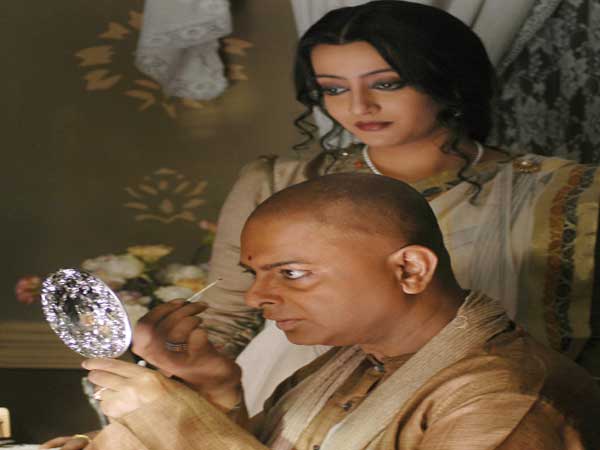
This Rituparno Ghosh died tragically young at the age of 49, but left behind him about twenty films that redefined Bengali cinema, and also spread his fame all over the country and the world through film festivals.
Towards the end of his remarkable career full of awards and acclaim, his gender fluidity and flamboyant dressing got him more attention than his films, and made him an LGBTQ icon. His films were always known to be intimate and fearless portrayals of relationships, and his particular sensitivity towards women; his own life may have been the inspiration for how this economics student-turned-adman perceived art, cinema and the human condition.
Sangeeta Datta, his friend and associate director on many films, who also co-edited a book on him, has made a beautiful and lyrical documentary on Rituda, as he was known, called Bird Of Dusk (which is doing the film festival circuit), using his own words from his memoir First Person, interviews with people who worked with him and pay him affectionate tribute, clips from his films and televised interviews.
Then there are no talking heads, the camera languidly captures the sights and sounds of Kolkata, that was at the heart of Ghosh’s films. Curators of international film festivals talk of how impressive his films were, and how redolent of his ‘Bengaliness’. Tagore, Kolkata, crumbling mansions and Durga Puja were recurring motifs, and the dominant emotion was loneliness, heartbreak, alienation.
His astounding creativity was evident even in his advertising days at Response, when he wrote, sketched and visualised with a fresh approach. He was a self-taught filmmaker, admittedly influenced by Satyajit Ray, and throughout his celebrated career, also wrote essays and poems along with many scripts, that his actors found fascinating; his eye for detail was legendary, and he preferred to shoot indoors, with not too many actors in the frame—if possible, just two.
His first film Hirer Angti (1992) was never released, which would be crushing for any young director; but his second, Unishe April (1994), made its mark, and with the third, Dahan (1997), his extraordinary talent exploded.
Aparna Sen, who was so impressed by the young man who came to see her (dressed in loose T-shirt and trousers, not yet the style-icon he went on to become, notes the actress-filmmaker), that she supported him by telling reluctant producers that she would star in his film without payment.
She, her daughter Konkona, Soumitra Chatterjee, Sharmila Tagore, Prosenjit, Nandita Das, Arjun Rampal, along with Ghosh’s regular collaborators (cinematographer Aveek Mukhopadhyay, editor Arghyakamal Mitra and music composer Debajyoti Mishra), are among those who chart his cinema career with astute observations. Das was upset when he suddenly replaced her with Aishwarya Rai in Chokher Bali (2003), after she had prepared for the part and also got her costumes made; in retrospect, she understands that taking a Bollywood star brought him the national attention he craved. (Tagore complained of how he disappointed her by giving a much-junior Rakhee top billing in Shubh Muhurat (2003) in the film they did together many years after Daag).
Aishwarya Rai went on to do Raincoat with him with Ajay Devgan (2003). At some point, it became trendy for Hindi film stars to work with him, so Amitabh, Jaya and Abhishek Bachchan, Sharmila Tagore, Rakhee, Ajay Devgan, Bipasha Basu, Raima Sen, Soha Ali Khan, Arjun Rampal, R. Madhavan, Naseeruddin Shah, lined up to be directed by the master, though his films were never blockbusters outside West Bengal.
Aparna Sen recognises the inner turmoil he went through after coming out of the closet, with his appearance getting so feminine that a somewhat thoughtless comment is made about how the female emerged from within him and killed the filmmaker. Sen speaks of asking him if “he wanted to be me,” or go for a sex change procedure, but he refused.
Kaushik Ganguly, who made Arekti Premer Golpo ( 2011) in which he cast Ghosh as a transgender filmmaker, recalls how he emerged after four hours of make-up, resplendent in silk and jewellery, “looking like Rekha.”
Datta’s detailed and insightful film explains just how and why the filmmaker attained the status of a cultural icon of Bengal, so much so that he was given a state funeral with a gun salute, his body placed, before the cremation, at his beloved Nandan, the movie and culture hub in Kolkata, where Rituparno Ghosh started his film journey with exposure to international cinema at film festivals.




